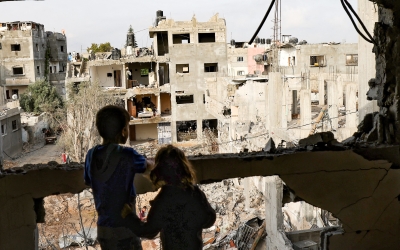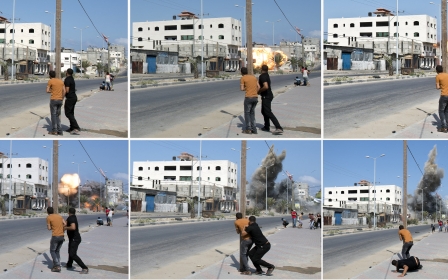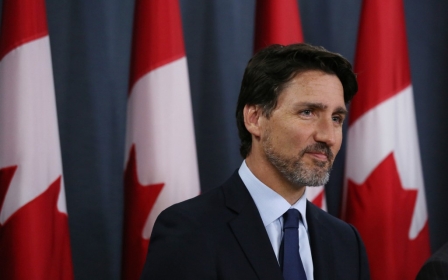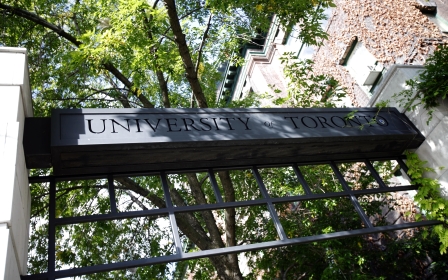Over 1,000 Canadian artists call for military and economic sanctions on Israel
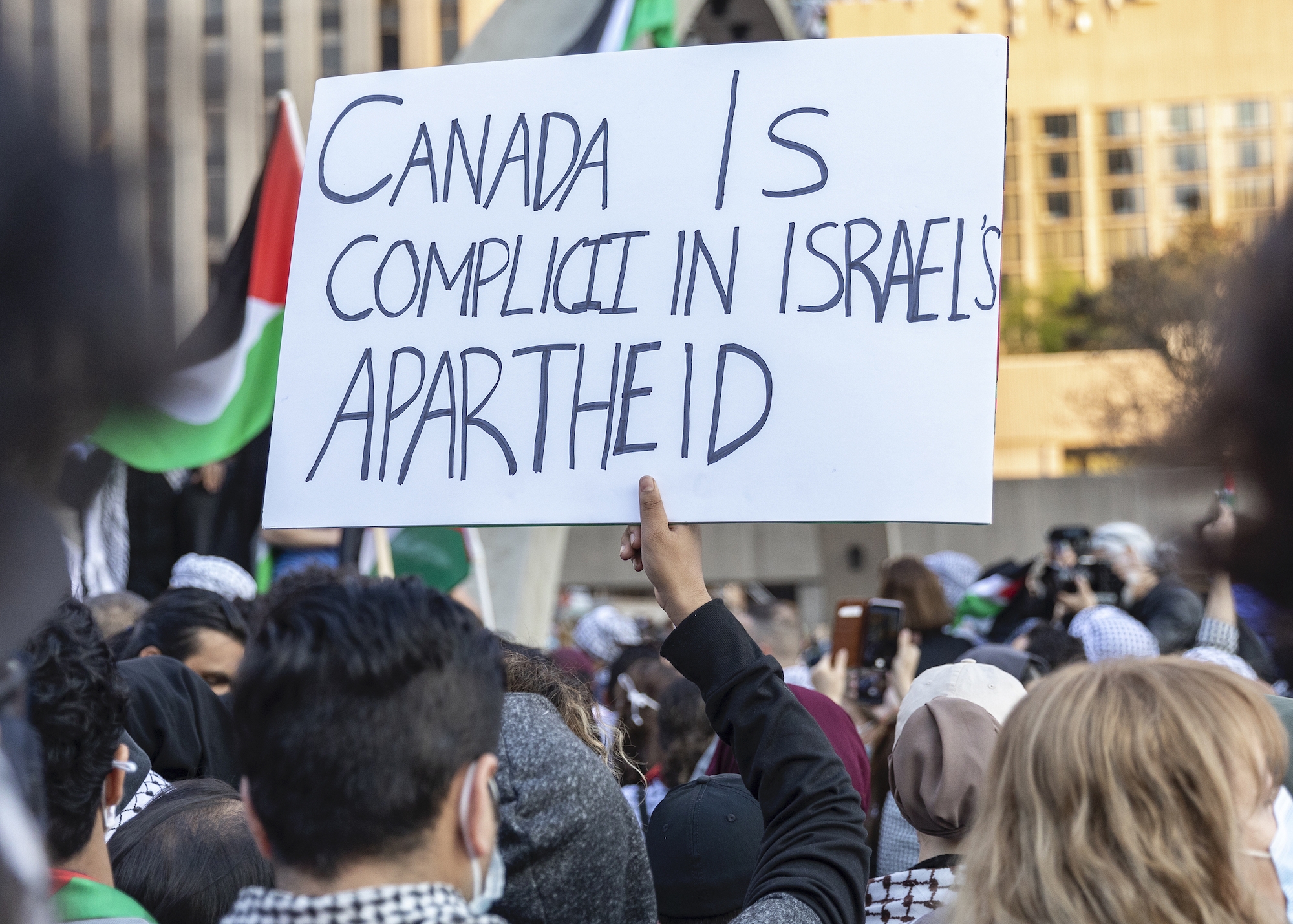
More than 1,000 Canadian artists and cultural workers have signed on to a statement calling for the Canadian government to impose military and economic sanctions on Israel and "to end its complicity in the oppression of Palestinians".
Declaring support for the Palestinian-led Boycott Divestment and Sanctions (BDS) movement, the group of artists also called on Canadian art organisations and institutions to end any form of collaboration with Israeli state-financed and sponsored art and cultural activities with Israel.
Rehab Nazzal, one of the organisers of the statement, told Middle East Eye that support for the BDS movement was included "as a peaceful means to pressure Israel to comply with international law".
'There is no free exchange of ideas when the colonizer uses culture and art as propaganda to whitewash its military occupation, colonization, and apartheid in Palestine," she said.
Nazzal said the artists' document began circulating on 21 May and has since been translated into French as well, adding that she has not observed this level of support for the Palestinian cause during her previous activism in Canada.
"I haven't seen such support before," Nazzal said. "Signatures are coming from across the country: curators; media and visual artists; filmmakers; workers in art organizations and artist-run centres; independent artists; musicians; researchers and art scholars; and other cultural workers" have all signed on [with] their support.
Ron Brenner, an internationally recognised artist based in Ontario that signed on to the statement, told MEE that artists often have more freedom to speak out on controversial issues due to the nature of their work.
"I am not afraid of saying Palestine or using the State of Palestine in my work. There is no one to fire me. Demote me. I am not afraid of being blacklisted by the supporters of the apartheid state of Israel," Brenner said.
'We are deeply shocked'
Released following Israel's 11-day bombardment of the Gaza Strip, which resulted in the deaths of 260 people, including 62 children, the artists' statement said that decades of international support for the Israeli government had resulted in the "dehumanisation of the Palestinian people".
"Silence in times of injustice is tantamount with complicity with the oppressor," the group said.
"We are deeply shocked by the recent developments on the ground in Palestine/Israel - the fourth bombardment since 2009 in Gaza," the artists said, going on to criticise the Israeli government for targeting residential buildings, hospitals, schools and infrastructure.
Judy Rebick, a Canadian writer and activist who signed on to the statement, told MEE that as a person of the Jewish faith, she always felt "a special responsibility to speak out against Israeli aggression".
"As a writer, I have done my best to expose Israel's military occupation and systematic racism against Palestinians," Rebick said. "I was sick at heart to see yet another assault against Gaza but am encouraged that more and more artists and cultural workers, as well as others, are speaking out against these injustices."
During the bombardment, two large protests were held in Toronto that saw thousands of people take to the streets in solidarity with Palestinians.
"The massive protests across the country, in spite of Covid restrictions, testify to the fact that the Canadian public is fed up with the domination of the Zionist narrative, the victimhood claims, and the continued colonization of Palestine and dispossession of the Palestinians," Nazzal said.
'Enough is enough'
In addition to recent developments, the artists' statement also denounced ongoing Israeli policies, such as the "brutal" land and sea blockade imposed by Israel since 2007, saying: "enough is enough".
In the occupied West Bank, the artists decried Israel's illegal military occupation; the dispossession, displacement and forceful expulsion of Palestinians; the demolition of thousands of homes; restrictions on freedom of movement with military checkpoints and the separation wall; land seizures; illegal settlements; and Israeli-only roads.
The group highlighted Israel's high level of Palestinian incarceration rates, and slammed the frequent night raids that "terrorize civilians''.
It also condemned violence carried out by Israeli police and citizens against Palestinian citizens of Israel, "including lynching, shooting, attacking, arresting, and marking homes of Palestinians reveals decades of systemic discrimination against indigenous Palestinians".
"Let us name it for what it is: apartheid and settler colonialism with the aim of ethnic cleansing," the artists said, noting recent reports from Human Rights Watch and Israel's leading human rights group B'Tselem, both of which accused Israel of committing war crimes against the Palestinian people.
"We are moved to speak out against the ongoing violence and destruction of the Palestinian people’s homes, their natural environment, farmlands and resources," the artists wrote.
"We are furthermore determined to work towards the end of the dehumanization of the Palestinian people as a result of decades of support that has been given to the settler-colonial state of Israel".
Last year, an EKOS research poll showed that 74 percent of Canadians opposed Israel's plans to annex more of the occupied West Bank, while 42 percent supported the use of economic or diplomatic sanctions against Israel.
Middle East Eye propose une couverture et une analyse indépendantes et incomparables du Moyen-Orient, de l’Afrique du Nord et d’autres régions du monde. Pour en savoir plus sur la reprise de ce contenu et les frais qui s’appliquent, veuillez remplir ce formulaire [en anglais]. Pour en savoir plus sur MEE, cliquez ici [en anglais].



